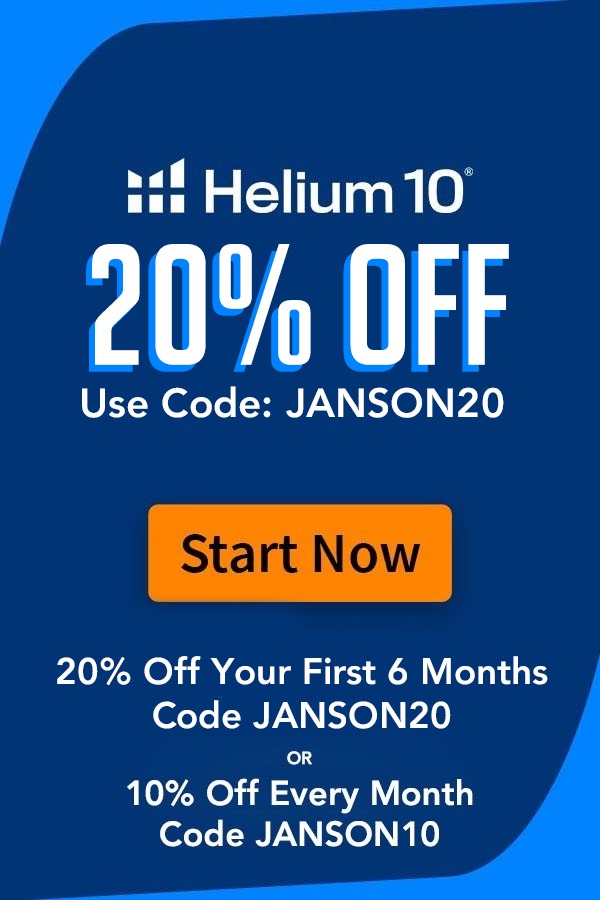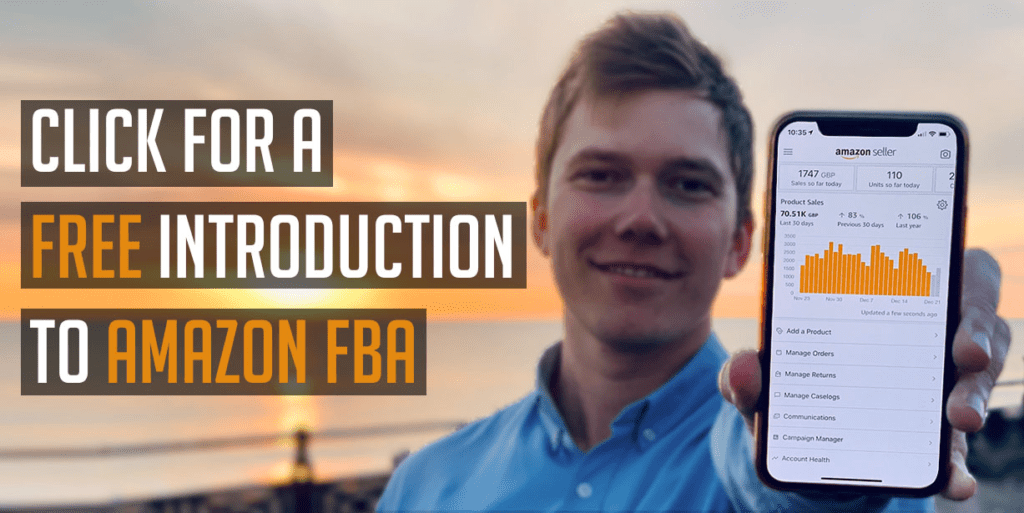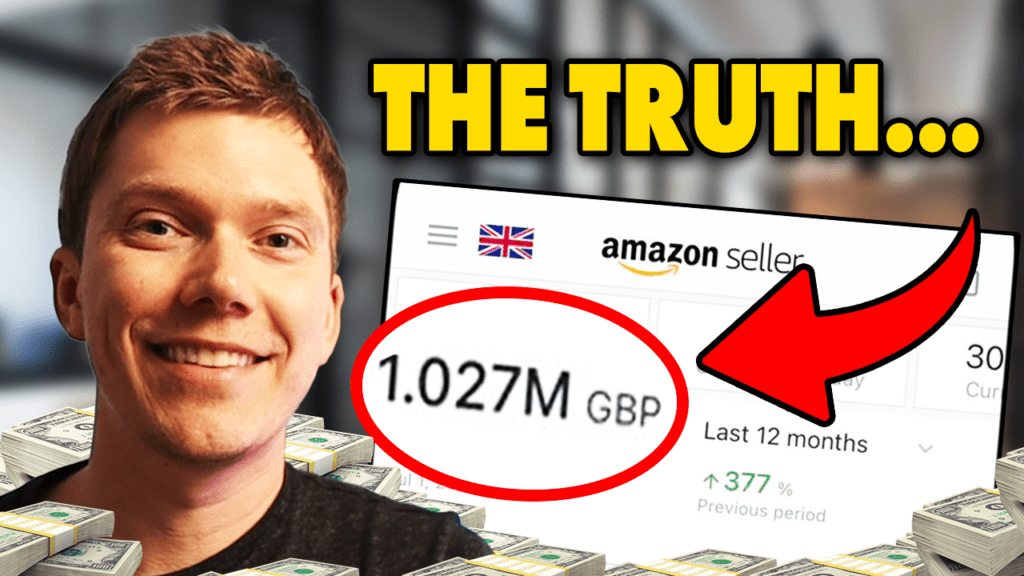
4 Things The Gurus Don’t Tell You
This week marks the 5th anniversary since I first decided to properly give Amazon FBA a go, and since making an inaugural post in an Amazon Facebook Group, I’ve gone on to build a 7-figure business that I run in my spare time.
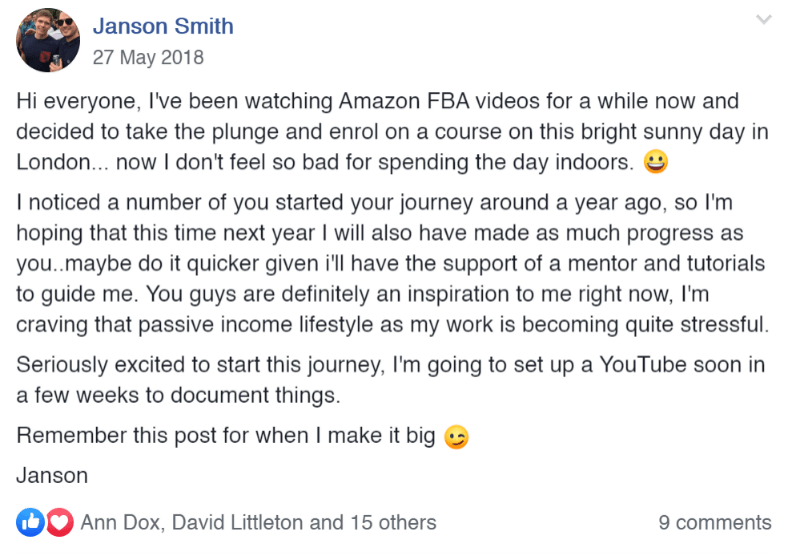
Whilst that’s quick for me to say, it hasn’t been easy, and to reach this point has required me to put in hundreds of hours of hard work, dedication and commitment. There’s been a lot of highs, and there have absolutely been a lot of lows – some of which have really made me ask the question, “Is Amazon FBA worth it?”. In order to give you the full picture of what the Amazon selling experience is really like so that you know what you’re letting yourself in for, I want to run through the key lessons that I’ve learnt over the past 5 years that other Amazon FBA gurus seem to hide, despite the fact that they’re incredibly important things to be aware of if you’re new to the game and considering running an Amazon business as a side hustle or full time business.
Lesson 1: Product Research Is Hard
One of the most appealing things about having an Amazon FBA business as a side hustle is that much of the legwork involved with selling a product online is done by Amazon themselves. If you’re not familiar with how Fulfilment By Amazon works, in summary it’s where you send products that you want to sell on Amazon to one of the many Amazon fulfillment centers, it becomes available for sale on the amazon website, and then when a customer make a purchase, Amazon charges them, then picks, packs and posts your product directly the customer for you.

To a complete beginner that’s just starting to learn about Amazon FBA, on the face of it, it might sound like a pretty straightforward and easy business to get going, but one of the biggest challenges that everybody faces is finding a product that they can profitably sell.
Amazon’s website is so big and saturated with sellers, that pretty much every single product that you can think of is already available for sale on there. But that’s not a problem because to achieve success with Amazon FBA, your goal is to find an existing product niche that has lots of demand already, but where the quality of the offer is low or can be further improved by you. That can be a time consuming challenge that a lot of beginners may not commit to.
It will take weeks.
After 5 years of doing product research myself and helping hundreds of other Amazon sellers to select and source a product, I’d say on average it’s going to take at least 5 weeks to learn the process of product research, understand what makes a good selling opportunity, and settle on a product to sell.
Despite what many gurus may claim, finding and settling on an Amazon FBA product to sell isn’t an overnight process, and it takes a lot of persistence and dedication, even more so with a private label product. But, with that said, there are ways to make searching for an Amazon product a bit more bearable.
When sellers start product research, my biggest piece of advice to Amazon sellers is to break up daily product research sessions into 20 to 30 minute chunks and rotate between as many different product discovery methods as can, each time. Spending hours and hours searching for a product is ends up being counterproductive as you start to feel overwhelmed, bored and on the brink of giving up. 20-30 minutes a day or in the morning and afternoon keeps things fresh and increases the likelihood of seeing new product ideas each time you log on.
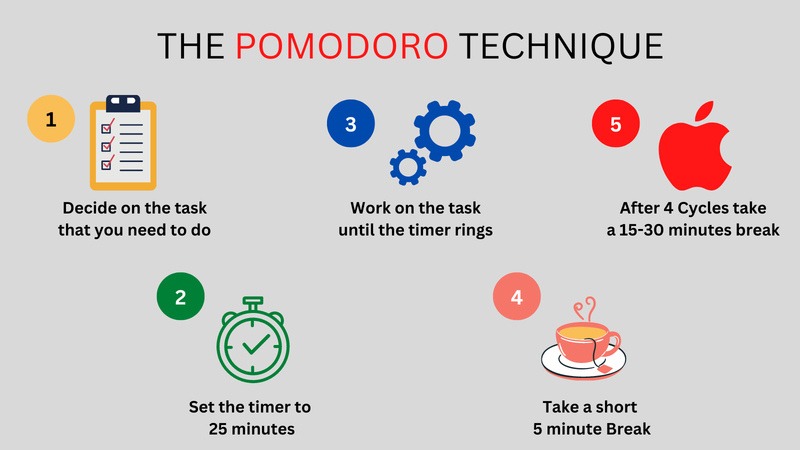
It’s a strategy that’s worked well for other sellers, those that I’ve coached, and it worked for me – I found my first product in just under 6 weeks, and I put that down to the fact I was able to stay consistent with my product research.
Once you do find a product to sell and you go through subsequent steps until you start selling, your confidence in Amazon FBA and the entire process will increase, which will ultimately make product research for additional products easier than before as you will doubt yourself less and trust your first instincts on anything that you come across. And that brings me onto my second learning point from the past 5 years…
Lesson 2: No Amazon FBA Seller Is 100% Confident
No matter how many hours you spend searching for an Amazon FBA product or how hard you negotiate with a supplier to reduce your costs, you’ll NEVER be 100% confident. There’s always going to be an element of doubt and uncertainty, and that’s fine. Having scaled my Amazon FBA business to 7 figures, gained over 5 years of experience and launched over 25 products, I still have doubts and concerns about every single product that I plan to launch on Amazon.
Self-doubt never goes away, and when it comes to business, no risk can be fully mitigated. And, if you’re new to Amazon FBA or are thinking about getting started, the sooner that you can get this into your head and accept that there is risk involved, the less likely you’ll face huge delays in getting started as a result of overanalysing every product opportunity that you come across and turning it down because of some real minor reason.
The amount of confidence and skills that you’ll gain from just a few short months of selling on Amazon is infinitely more than you’ll gain from staying stuck in the product research stage because you’re looking for a perfect product that has zero risk attached to it. That is never going to happen, and if you can’t train your mind to accept some level of risk, you’re just not going to get to the most valuable part of the whole experience, which is actually selling.
Like driving a car.
To me, learning how to sell on Amazon is like learning to drive a car. You can read plenty about the rules of the road and how to drive from the comfort of your home, but the real experience where you encounter the things that textbook just can’t teach and where you gain the biggest increase in confidence, that comes from actual practice and getting out on the road – and it’s the same with Amazon. A course, mentor and doing infinite amounts of product research all have limitations on where they can get your confidence.
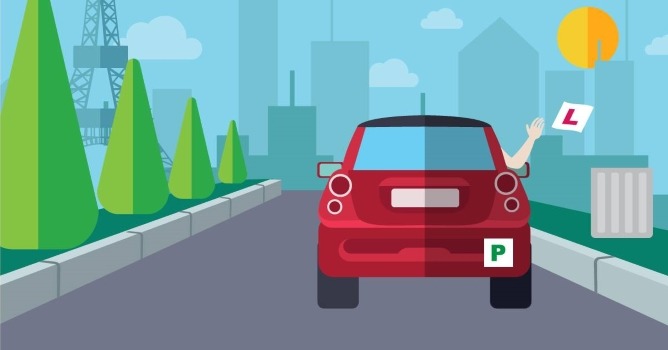
But putting yourself out of your comfort zone and gaining experience as an Amazon seller, that is going to teach you things that no course or mentor can, and it’s going increase your confidence in the process tenfold, which will make you realise that it’s okay to not be 100% certain on a product, as long as you’ve done the right amount of diligence and on the whole, the positives outweigh the negatives.
For every product that I’ve launched on the Amazon marketplace, I’ve never gone into the launch being 100% confident in its success. But what I have been 100% confident in, is the value from the experience of launching each product, and the lessons that that I learn from If things don’t go to plan – both of which help to increase my confidence that I won’t make the same mistake next time round.
So, if you’ve been stuck in that product research phase for months, keep in mind that your confidence will never be 100%, and whilst it would be great to have a successful product straight off the bat, in reality, It’s far better to focus on gaining active selling experience which ultimately provides way more value than the profit that you’d get with any successful product’s initial order.
Lesson 3: Success Relies Heavily On Execution
Over the last 5 years I’ve seen thousands of Amazon product launches, some have been a success, and some have been massive flops. When I’ve analysed any failure to assess what went wrong, it usually always boils down to one key reason for most sellers: poor execution.
You could have the best product idea in the world, but if it doesn’t have demand from Amazon customers, it won’t be a success. Or you could have a product that has tonnes of demand, but if the supplier uses cheap materials and it has awful reviews, it won’t be a success. Or you could have the best product and the best supplier ever, but if the product’s listing sucks and it doesn’t convey your product’s benefits and compel the customer to buy – guess what – it won’t be a success. You get my point, execution is everything in this game, and if you cut a corner or skip a step, the chances of failure are going to be heightened dramatically.
And this is something that I have seen from many Amazon sellers so many times over the past 5 years, and even fallen victim to myself. My very first product was a success straight off the bat, generating £30,000 in revenues in its third month, with a 20% profit margin.
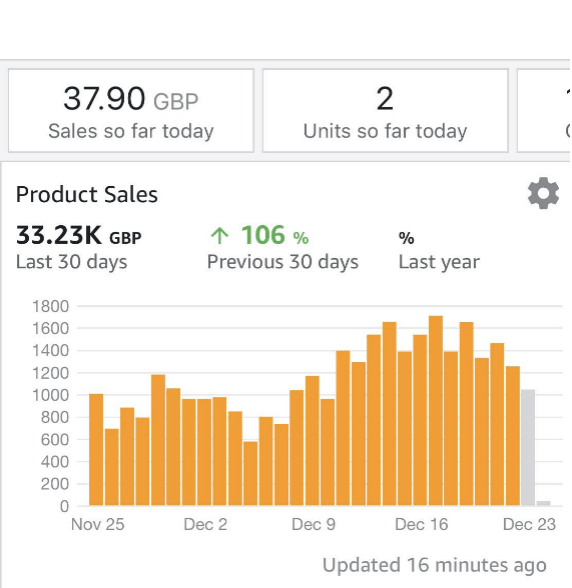
But, at my request, the supplier started to use cheaper materials to push my costs down, and because of that, complaints increased, the review score went down, and because of poor execution, the product ultimately failed.
Do not underestimate the importance of each and every step when going through the process of launching a product on Amazon, and no matter how enticing it might be to go with the cheapest supplier available, or to do your listing images yourself when you have no prior experience, always go with the best that you can afford and look to execute every single step of the process as flawlessly as you can, otherwise you’re needlessly increasing your chances of failure.
Lesson 4: It’s Not Completely Passive Income
The main attraction of selling products via Amazon FBA is that much of the legwork is done for you. There’s no need for you to market to cold customers, or go to the post office to dispatch any product you sell, and you don’t have to store any units at your house either. And because of this, Amazon is often described by many gurus as a passive source of income, but this isn’t really true.
As somebody that still has a pretty time consuming job whilst doing Amazon FBA on the side, what I can say is that the amount of time that’s needed to run this business once you’ve launched a product can be kept pretty minimal to the point where it could be described by some as more or less passive, particularly if you’re happy to use some of your profits to outsource key tasks to others such as advertising, just like I have. Because I make use of outsourcing, I actively spend around 2 hours a week on my Amazon business, with the majority of the tasks that I need to do able to be completed on my phone either on my commute or later on in the evening… sounds pretty passive right?
Well, not quite, because even though I spend a minimal amount of time actually working on my Amazon business, I think about Amazon, a lot. And I mean a lot. Without a doubt, I’d say that I’ve thought about my Amazon business every single day since I decided to start back in 2018, and sometimes, that’s not a great thing. As an entrepreneur, my mind is always on the go, thinking of opportunities or things that can be done better in order to grow my Amazon business even more, and that can be pretty exhausting at times.

In fact, my Amazon business can take up such a big share of my thoughts throughout the day – and I know it’s the same for many sellers – that it can dictate my mood and how I speak to others. Bad sales days can set me off on a period of depression, and good sales days can get me singing through the streets, which is an effect that you may not be prepared to deal with, and an effect that I’d say removes the Amazon FBA business model as being one that is passive that you can just forget about.
Controlling how frequently I think about my Amazon FBA business and how I let it impact my emotions is a very difficult task, and so when an inevitable badly performing day or week comes along, it’s always a challenge to put anything related to Amazon to the back of my mind in order to forget. This is something that you just don’t really hear the gurus talk about, even though it’s a really important point to make others aware of, because whilst selling on Amazon might not eventually take up much of your physical time, it can actually take up far more time than any other job can from a mental perspective, which you may not be equipped to deal with if you’re somebody that suffers from anxiety or is a worrier in general.
Is Amazon FBA Worth It?
After experiencing some real gut wrenching lows over the years, such as being attacked by competitors with 1 star reviews, to nearly being sued for patent infringement, the one thing that has gotten me through all of the tough times – of which there have been many – is having a very supportive group of people close to me and a solid Amazon FBA network, both of which are incredibly important.
Whilst I obviously don’t regret a single moment of my experience as an Amazon seller over the years, I will say that there have been times that have been incredibly challenging where I’ve considered throwing it in, and I’ve got my wife and a close knit Amazon FBA community to thank for the fact that I haven’t. A big piece of advice that I always give those that are both new sellers and those joining my mentorship programme is to network with others who are on the same journey as much as possible, so that you can share experiences, keep each other motivated, and hopefully reduce some of the mental strain that selling on Amazon can put on you.
So, after 5 years of selling and hundreds of thousands of products sold, is Amazon FBA worth it? Yes, absolutely I don’t regret a single minute, BUT it has not been an easy ride despite what the gurus say, and at times the challenges that you face will take its toll on you. When those challenges do arise, my one key learning since I started is to keep your chin up and keep going until things go smoother, which they will do.
To gain deeper insights into my personal journey as an Amazon FBA seller, I invite you to read my previous blog post. In this article, I share the top 5 challenges I’ve encountered as an Amazon seller throughout my experience and, more importantly, the strategies I’ve implemented to overcome them successfully. Discover firsthand how I navigated the hurdles of the Amazon FBA business and turned challenges into opportunities for growth and success.
If you want to learn how you can create an Amazon FBA business yourself, then check out my free training where I’ll teach you everything you need to launch your first product on Amazon and scale to $5,000+ in monthly profit.
Or if you’re ready to begin your journey and want to start with the best chances of success, apply to become a member of HonestFBA’s training programme where you’ll receive guidance & support from our team of 7-figure Amazon FBA seller experts whenever you need it.




